The 46th European Bar Presidents' Conference is dedicated to the independence of self-government
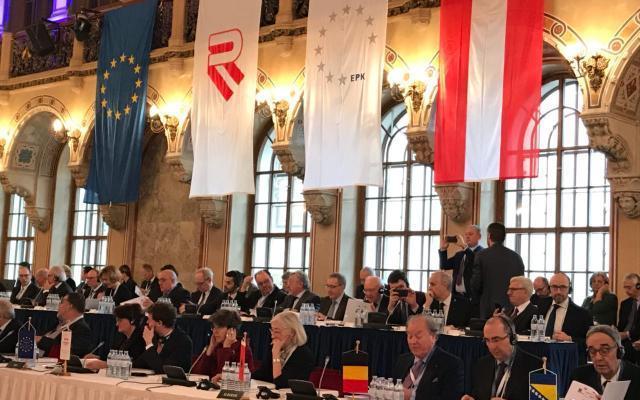
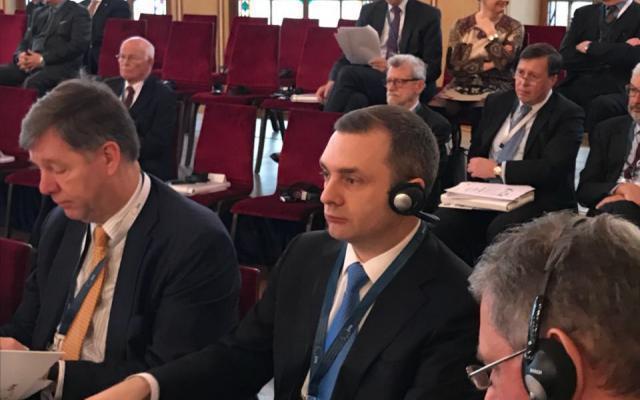
UNBA/BCU Vice-President Valentyn Gvozdiy and the Chair of the Higher Audit Commission of the Bar Maksim Boldin, took part in the 46th Annual Conference of Bar Leaders of Europe in Vienna. This year, more than 200 leaders of national Bars, leaders of advocates' self-government and representatives of the largest professional organizations - CCBE and IBA took part in the conference.
The main topic of the 46th Conference was the independence of the professional self-government from the state. Discussions of the participants demonstrated that, regardless of the country at question, the relations between the Bar and Government remain problematic. This was a message delivered by representatives of France, while the delegation from Poland was concerned about the systematic problems that arose as a result of absence of a strong organization that could represent all advocates. Many delegations spoke about the menacing tendency of violation of the rights of Bar self-government, which poses a threat to the rule of law in principle.
"Our indisputable right to have independent professional organizations is the only guarantee of our strong influence on the rule of law. Otherwise, we will not be able to protect human rights," said Maria Šlazak, a former Vice-President of CCBE in her keynote speech at the conference.
For the first time in the history of the EPK, the Ukrainian delegation delivered a speech.
Valentyn Gvozdiy reported on the success of the Ukrainian Bar in the development of the self-government system. The core law of 2012, which currently regulates Ukrainian Bar, is one of the newest in Europe, however, within a short period of five years Ukrainian advocates managed to create from the ground up a new self-governing organization that fully complies with the standards of the Council of Europe, able to protect the rights of lawyers and act as a voice of the legal community. At the same time, the forced reform of the legal profession is a concern, since it is based upon a non-viable model of decentralization. As a result, the unity of the national Bar may be ruined, which poses a risk to the unitary Ukrainian State.
"Some ideologists of the Bar reform from the Working group of the Council for Judicial Reform propose to overhaul the system of advocates' self-government. A completely non-working option is on the table, which will be the first step towards the actual federalization of the legal profession in a unitary country. We cannot allow this to happen, as this proposal introduces a number of corruption risks, and, moreover, has nothing to do with actual decentralization, "- said Valentyn Gvozdiy.
The UNBA/BCU Vice-President informed that UNBA and regional Bar self-government, proposed to improve the existing model, rather than develop everything anew. The Joint Opinion of the Venice Commission confirmed its compliance with European standards both in terms of structure and distribution of powers. At the same time, the draft amendments from the Working Group are simply manipulative in terms of assessment of compliance with the standards of the Council of Europe and even direct contradict them.
Ukrainian delegation had a series of meetings at the conference, e.i. with President of the Legal Society of England and Wales on the preparation of a now traditional joint event in Kyiv. A number of meetings were also held with representatives of German Bar and Bars of other European nations.
There was a meeting with the President of the Bar of Kazakhstan. Madam President expressed interest history of development of Ukrainian Bar and its self-government system as means of defending the independence of the legal profession.
Popular news
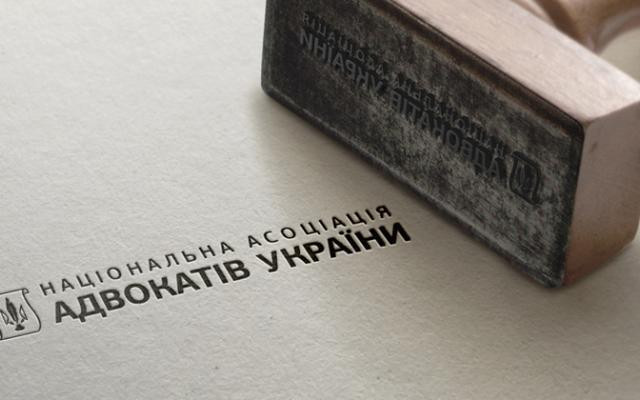
Self-government
The BCU demands a review of the composition of the government working group on reforming the advocacy profession
The President of the UNBA, BCU Lidiya Izovitova, appealed to the Cabinet of Ministers of Ukraine to review the composition of the working group on improving legislation in the field of advocacy and legal practice.

Discussion
Why lowering the age of marriage lacks legal logic
Although until 2012 there was a provision in family law that allowed children to marry from the age of 14 under certain circumstances, its return to Ukrainian law would contradict international obligations and the logic of criminal law.
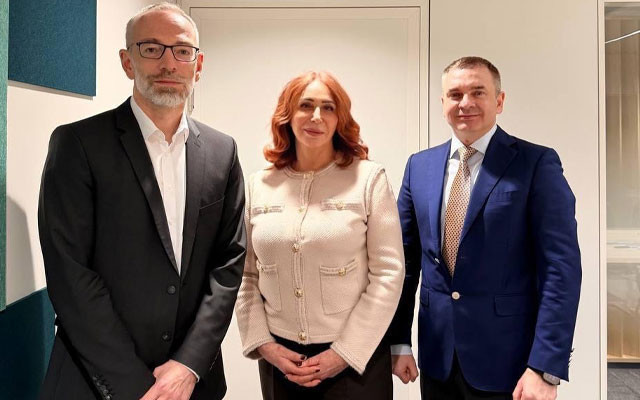
European integration
Open dialogue between the UNBA and the European Commission on the path to EU
The Ukrainian National Bar Association held a working meeting in Brussels with Mr Wolfgang Nozar, Head of Unit for Governance, Rule of Law and Financial Assistance, Directorate-General for Enlargement and Eastern Neighbourhood (DG ENEST), European Commission.

Self-government
A report on Ukrainian advocacy was presented in the European Parliament
Can a shadow report on advocacy replace the political framework of the Roadmap on the rule of law with demands for the restructuring of self-government? Where is the line between accountability and the seizure of institutions? And how can we respond to narratives with data rather than impressions?
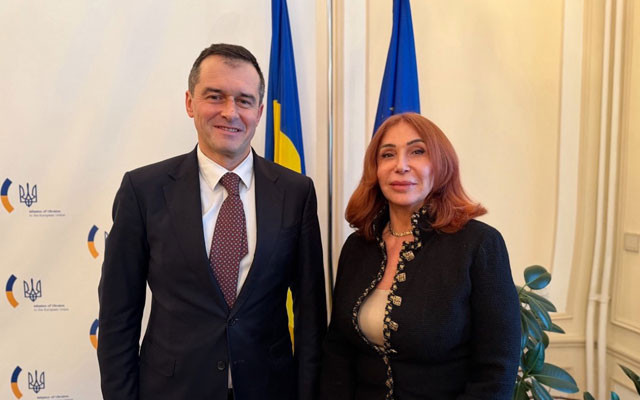
European integration
UNBA and Ukraine's representation to the EU have synchronized their priorities
On February 5, in Brussels, the President of the UNBA, BCU Lidiya Izovitova held a working meeting with the Ambassador Extraordinary and Plenipotentiary of Ukraine, Representative of Ukraine to the European Union Vsevolod Chentsov.
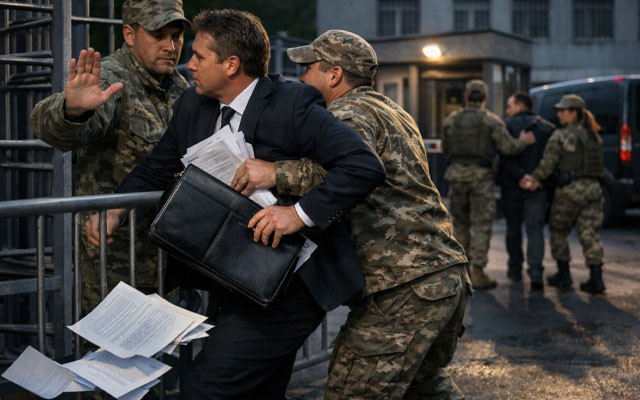
Guarantees of the practice of law
Proceedings opened following attack on advocate in Dnipro
The Committee for the protection of advocates' rights and guarantees of legal practice of the UNBA appealed to law enforcement agencies in connection with an advocate's report of an attack while performing his professional duties. The information was entered into the Unified Register of Pre-trial Investigations and a pre-trial investigation was initiated.
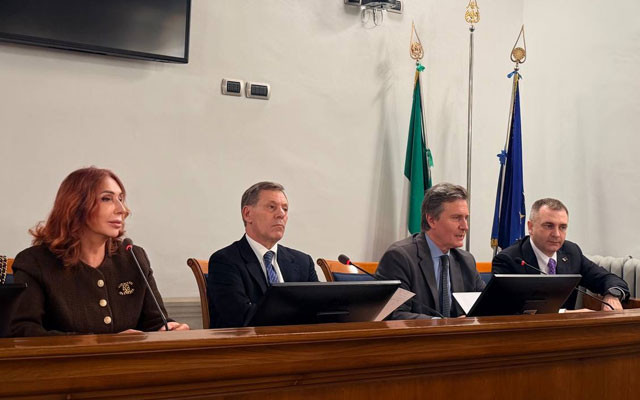
Interaction
«With us — to Europe»: Italian advocacy supports UNBA initiatives
On January 30, a meeting was held in Rome between a delegation from the Ukrainian National Bar Association and the National Bar Council of Italy (Consiglio Nazionale Forense, CNF) on the standards and practices of the legal profession and their significance for Ukraine's European integration process.
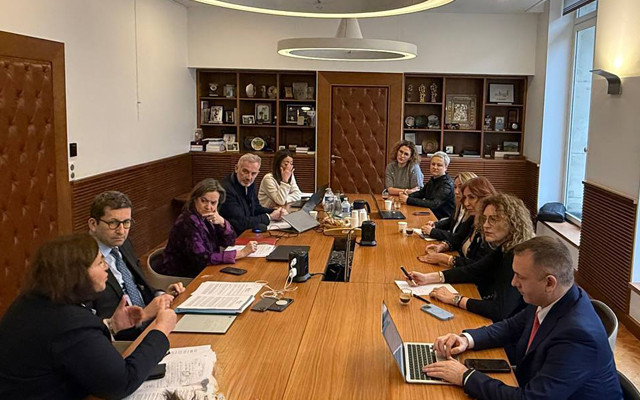
Interaction
France confirms cooperation with UNBA on reforms in the field of the rule of law
On January 29, a working meeting between representatives of the Ukrainian National Bar Association and the French National Bar Council (Conseil National des Barreaux, CNB) took place in Paris.
Publications

Volodymyr Matsko Extradition as a systemic form of rights violations

Victoria Yakusha, Law and Business The anti-corruption vertical cannot «take care» of the Bar as an institution, - acting head of the HQDCB

Censor.net Protecting advocates – protecting justice: addressing concerns about the new law

Ihor Kolesnykov A BRIEF SUMMARY REGARDING THE APPLICATION OF THE ORDER ON EXTENDED CONFISCATION IN LATVIA REGARDING FINANCIAL ASSETS OF…

Valentyn Gvozdiy WORKING IN A WAR ZONE

Lydia Izovitova Formula of perfection

Sergiy Vylkov Our judicial system is so built that courts do not trust advocates

Iryna Vasylyk Advocacy in the proclamation of Independence of Ukraine
